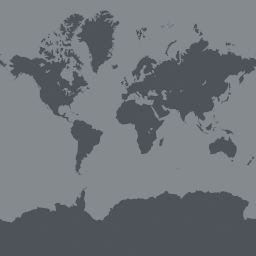This project emphasizes the role of training in establishing a local community of practice for bird conservation professionals and students in Kenya. To improve data acquisition, data analysis and research skills of this community, this project has three main objectives focused on data about endangered bird species in Kenya:
- Integrating biodiversity data into conservation decision-making via conservation policy briefs created in collaboration with graduate students, early-career scientists and conservation managers
- Enhancing the use of BID data by graduate students and early-career scientists through the publication of peer-reviewed articles
- Strengthening the capacity of conservation managers to collect policy-relevant biodiversity data through citizen science
We propose an approach based on a "training of trainers" model that will enhance the capacity of graduate students, early-career scientists and conservation managers while mainstreaming the use of biodiversity data in national conservation-decision making.
We will measure the impact by:
- the number of graduate students, early-career scientists and conservation managers trained
- the number of BID datasets downloaded from the GBIF data portal
- the number of peer-reviewed articles and conservation policy briefs jointly authored by graduate students, early-career scientists and conservation managers and published in reputable journals
- the number of data records digitized and published during workshops by participating conservancies and early-career scientists
Project progress
The project achieved two training workshops as planned for year 1, TOT I and TOT II creating a community of practice including masters and PhD graduate students, early-career scientists, conservation managers and established scientists at local universities engaging in developing manuscripts through the students graduate work. The students are using BID data in their research work. They were trained on data acquisition and publishing on GBIF and have been able to download GBIF data for their ongoing research.
The three main objectives of the project have progressed as below:
-
15 Fellows in the project were trained on the development of policy briefs during TOT. Each fellow is progressing with developing a policy brief based on analysis of the BID data as an objective of their thesis. Policy dimension is integrated in every thesis for 2 PhDs and 2 Masters fellows
-
Fellows have downloaded data from the GBIF portal for their graduate research and are progressing with analysis. The early-career scientists are offering academic guidance for co-authorship
-
Four conservation managers were admitted as BID fellows and went through the TOT I on protocols for collecting policy-relevant data through citizen science and worked along with the graduate students in designing the policy issues to review in their research.
11 699 data records on raptors have been digitized and published on the GBIF portal and are currently in use by one of the PhD BID fellows to publish a peer review article. Development manuscripts for publishing of peer review articles on endangered birds in Kenya are ongoing. 4 peer-review articles and policy briefs are ongoing by the graduate fellows supervised by the early careers; 8 out of the planned 10 due to 1 dropped case.
The BID-C research center is already established at Strathmore University motivated by the BID grant. One BID fellow will present results at an international conference and will be linked to the BID-C webpage.



